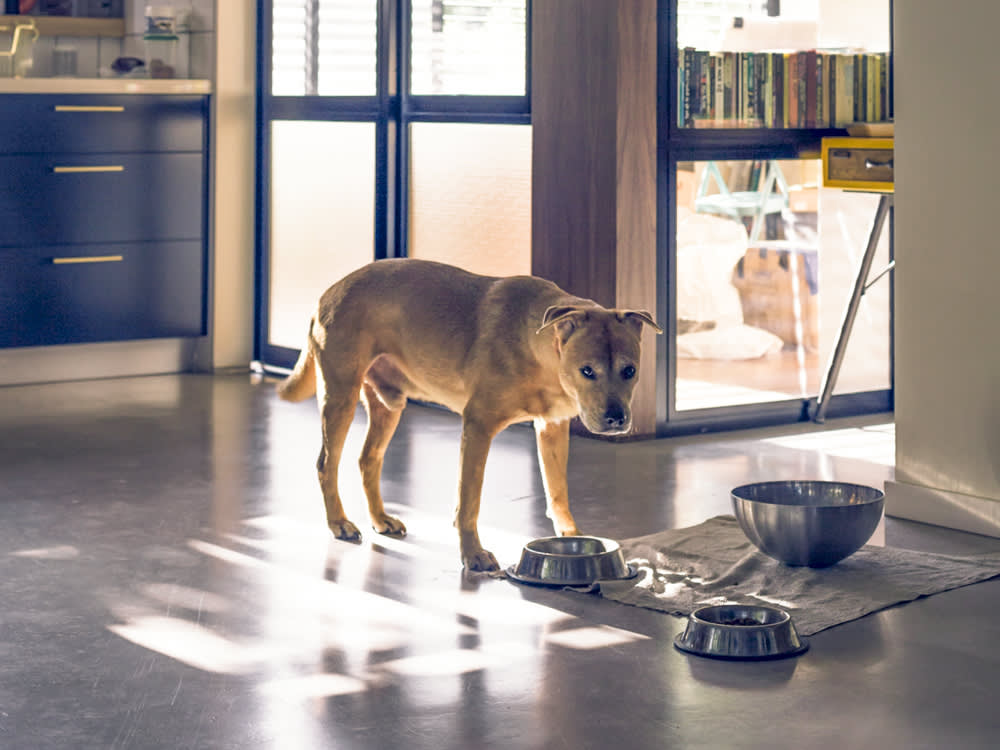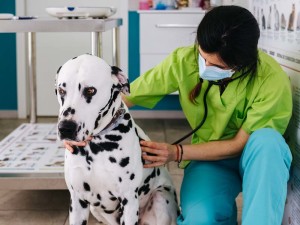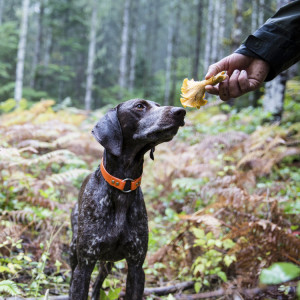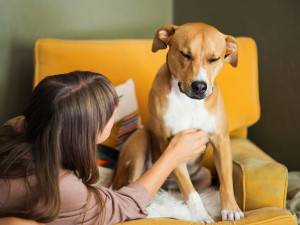Your Pet’s Behavioral Issues Might Be All in Their Gut
It’s a gut thing: Your dog’s GI issues could be linked to their mental health.

Share Article
Deciding to adopt your pet was probably what you’d call “a gut decision” — heavily influenced by cuteness. When it comes to our physical gut, though, there are all sorts of vitamins and supplements claiming to set things right and make you feel better.
Although our pets’ noses tell them more about the world than their guts might, they need some TLC in that area, too. If you’ve got a dog or cat who acts anxious or lashes out, you’ve probably tried everything from environmental changes to behavior modification to medication. But one thing you may not have considered is a deep dive into your pet’s gut microbiome.
Not sure how gut health connects to one’s emotional response? It has to do with the gut-brain axis, which is how the digestive tract communicates back and forth with the central nervous system. If you’ve ever felt butterflies in your stomach when you’re worried, you’ve experienced the gut-brainopens in new tab axis in action.
Researchers studying the connection between gut health and mental disorders in humans have found evidence suggesting that regulating gut bacteria could help alleviate anxiety symptoms. And it turns out the same could be true for our furry friends.

The Gut’s Role in Mental Health
Serotonin and dopamine are examples of “feel good” chemicals used by the brain to affect mood and decision-making. Bacteria in the gut produces the bulk of these chemicals. Other bacteria in the gut may produce chemicals that promote anxiety or mood disorders. So, it makes sense that regulating gut bacteria could affect mood or behavior. Studies have found differences in the microbiomes of anxious miceopens in new tab and aggressive dogsopens in new tab that could prove helpful for developing treatments and therapies.
Steps Pet Parents Can Take
Talk to Your Vet
The thought that a healthy gut could alleviate your pet’s symptoms of anxiety or aggression may have you gleefully reaching for a container of probiotic-packed yogurt. But before you do, it’s best to chat with your veterinarian. A healthy gut is vital for many reasons, including breaking down food, absorbing nutrients, and maintaining a healthy immune system.
According to veterinarian Dr. Jessica Heckman, “an unhealthy gut often makes itself known through soft stools or even diarrhea. These are the most common veterinary indications that a dog might benefit from probiotics.” There are also tests availableopens in new tab that can analyze the bacteria in your pet’s gut.
Consider What You Feed Your Pet
The food you give your pet can impact their gut health. Certain processed foods can harm the microbiome. Your veterinarian can help you determine the best diet for your pup’s needs.
Explore Supplements
There are some probiotic products for dogs that specifically claim to promote calm behavior and alleviate anxiety. Other probiotic supplements geared toward general digestive health are available for dogs or cats, but further research is needed to determine how well they work for reducing anxiety or aggression. Still, they may be a good option to consider if your pet is experiencing issues or as a preventive measure.
“There’s a lot we don’t know about probiotics,” Dr. Hekman says. “Some pet owners do include them proactively; others don’t. But since they are very safe, there is no harm in doing so. Just be sure to always let your veterinarian know about any supplements you are giving your pet.”
Consult with a Veterinary Behaviorist
Treating anxiety or aggression in pets can be difficult and time-consuming. And it often requires a combination of therapies to address the root cause and change behaviors. Managing gut health may be one of the areas you and your pet’s healthcare team can explore. Dr. Hekman agrees.
“With a serious behavioral issue, I recommend working with a veterinary behaviorist (rather than a non-veterinary behavior consultant) to discuss treatment,” she says. It’s very worthwhile to discuss probiotics and the possibility of a microbiome issue with a behaviorist.”
No matter what you decide, it’s always best to go with your...gut.

Kate Sheofsky
Kate Sheofsky hails from San Francisco, where she developed a love of writing, Giants baseball, and houses she can’t afford. She currently lives in Portland, OR, and works as a freelance writer and content strategist. When not typing away on her laptop, she enjoys tooling around the city with her two rescue pups searching for tasty food and sunny patios.
Related articles
![Dalmatian and Great Dane mixed dog at the vet being checked on by a nurse in bright green scrubs]()
Why Is Your Dog’s Stomach Hard? What to Give a Bloated Dog
And when to be concerned.
![A dog sniffing a mushroom out of a hand.]()
6 Mushroom Superfoods that Won’t Turn Your Dog Into a Zombie
Nothing to fear here The Last of Us fans — ’shrooms are great immune-boosters.
![A pet parent checks their dog's stomach.]()
DIY Physical Exam Part 4—How to Examine Your Dog’s Stomach and Skeleton
Veterinarian Dr. Shea Cox on how to properly examine your dog’s stomach and musculoskeletal system.
![Bone broth soup]()
Let Your Dog Lap Up Your Bone Broth
It isn’t just a healthy cocktail for the likes of Gwyneth Paltrow and Kylie Jenner. And we’ve got a recipe.
![A dog sitting on the floor with a bowl of kibble.]()
Everything You Need to Know About Your Dog’s Gut Microbiome
Microscopic organisms may reveal pathways to better health for your pet.







